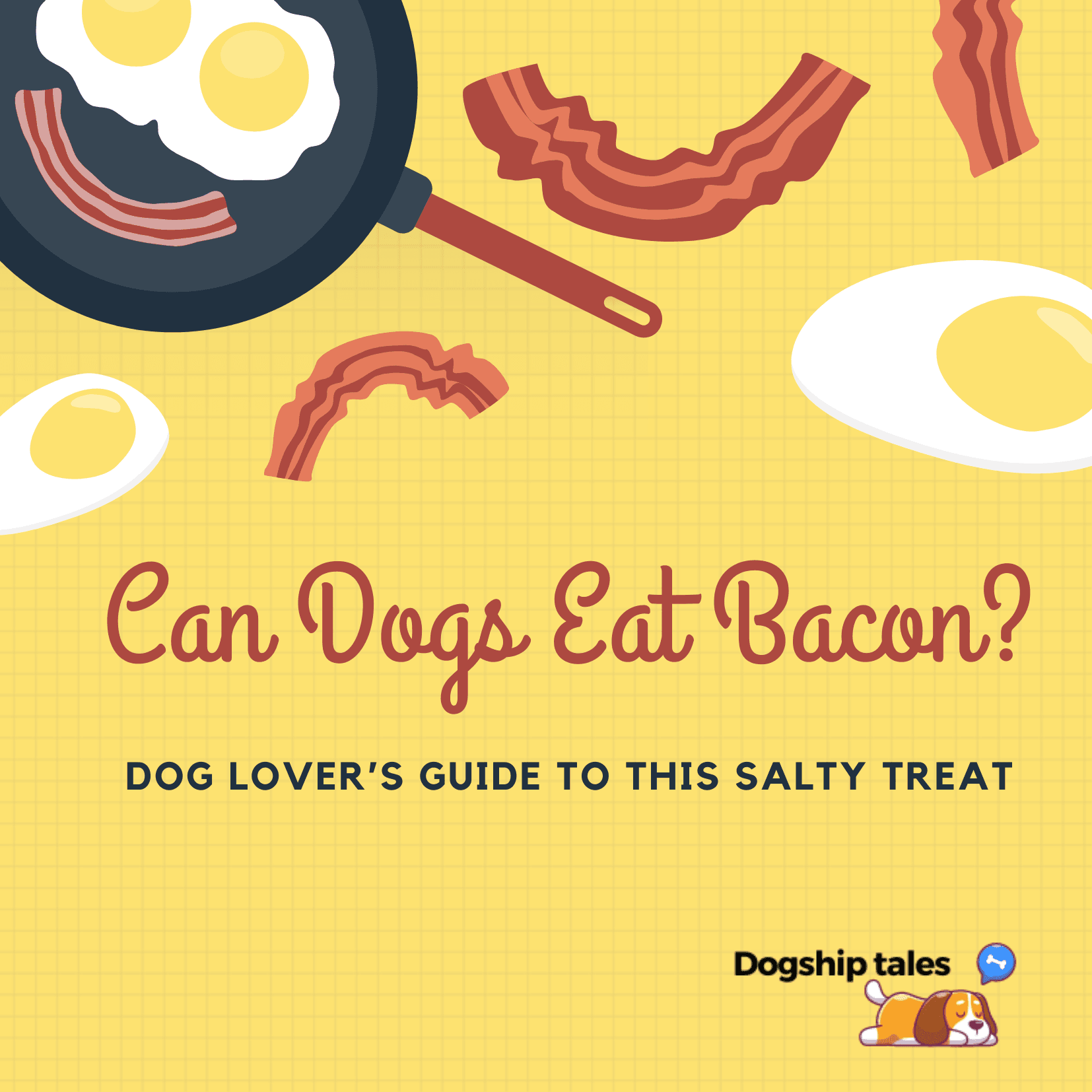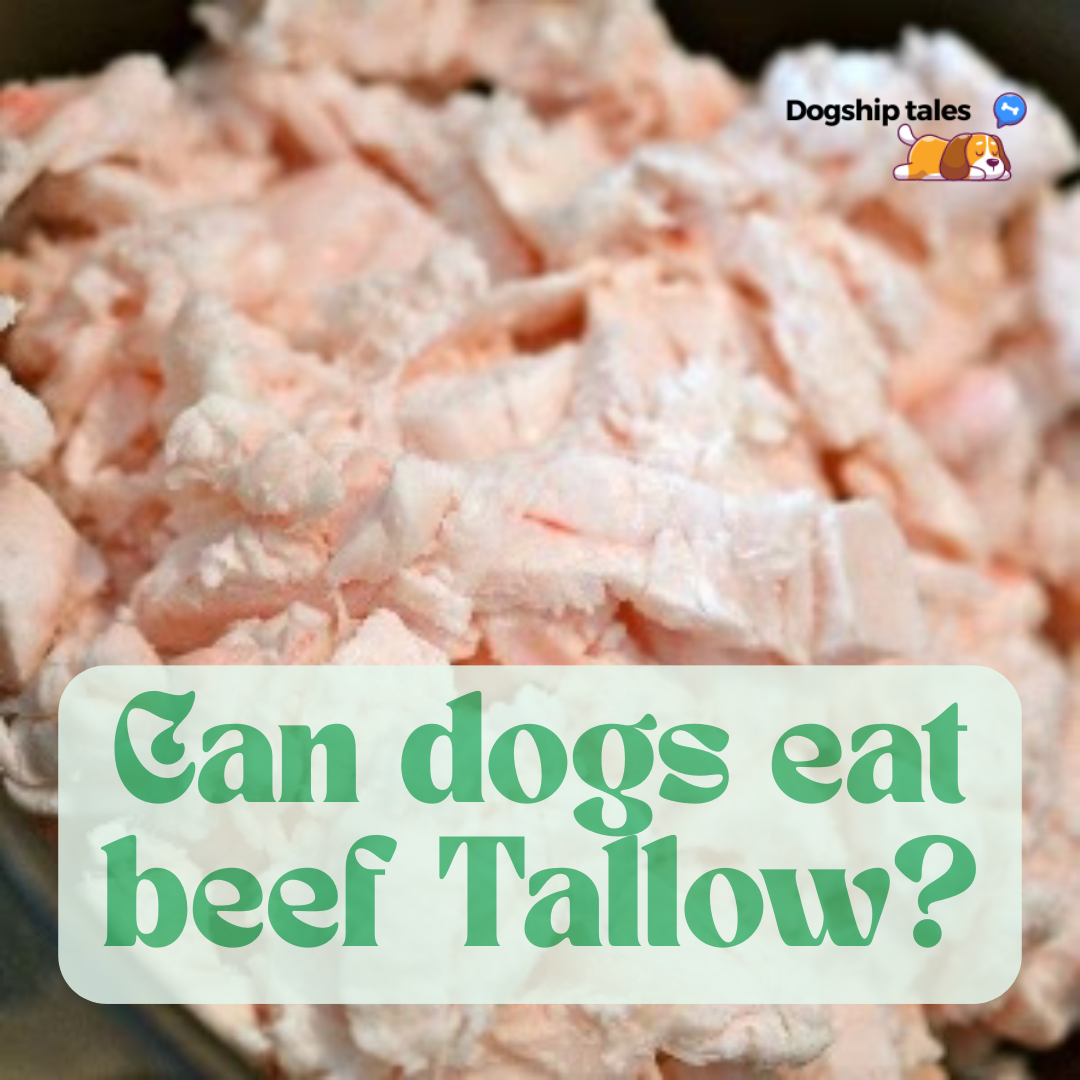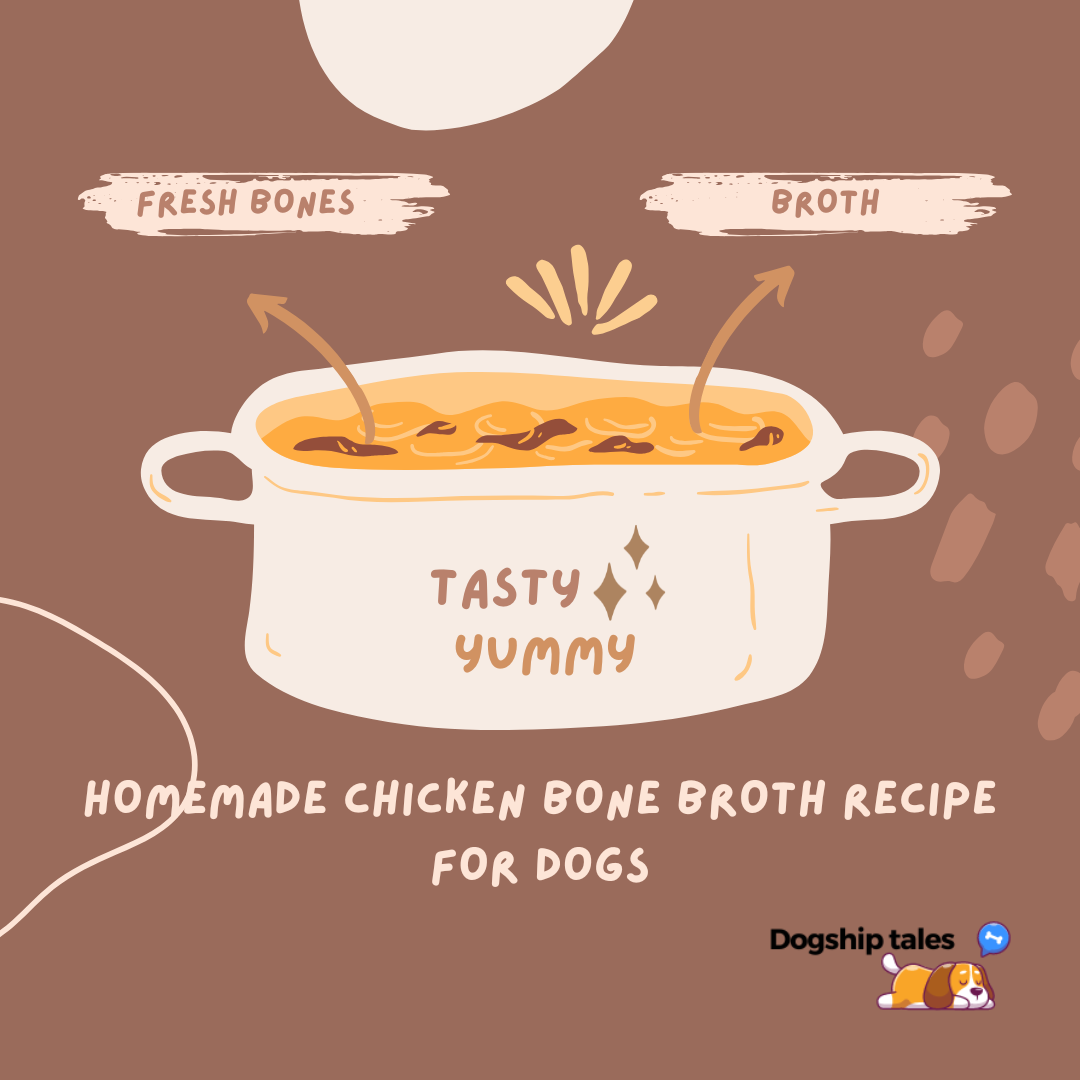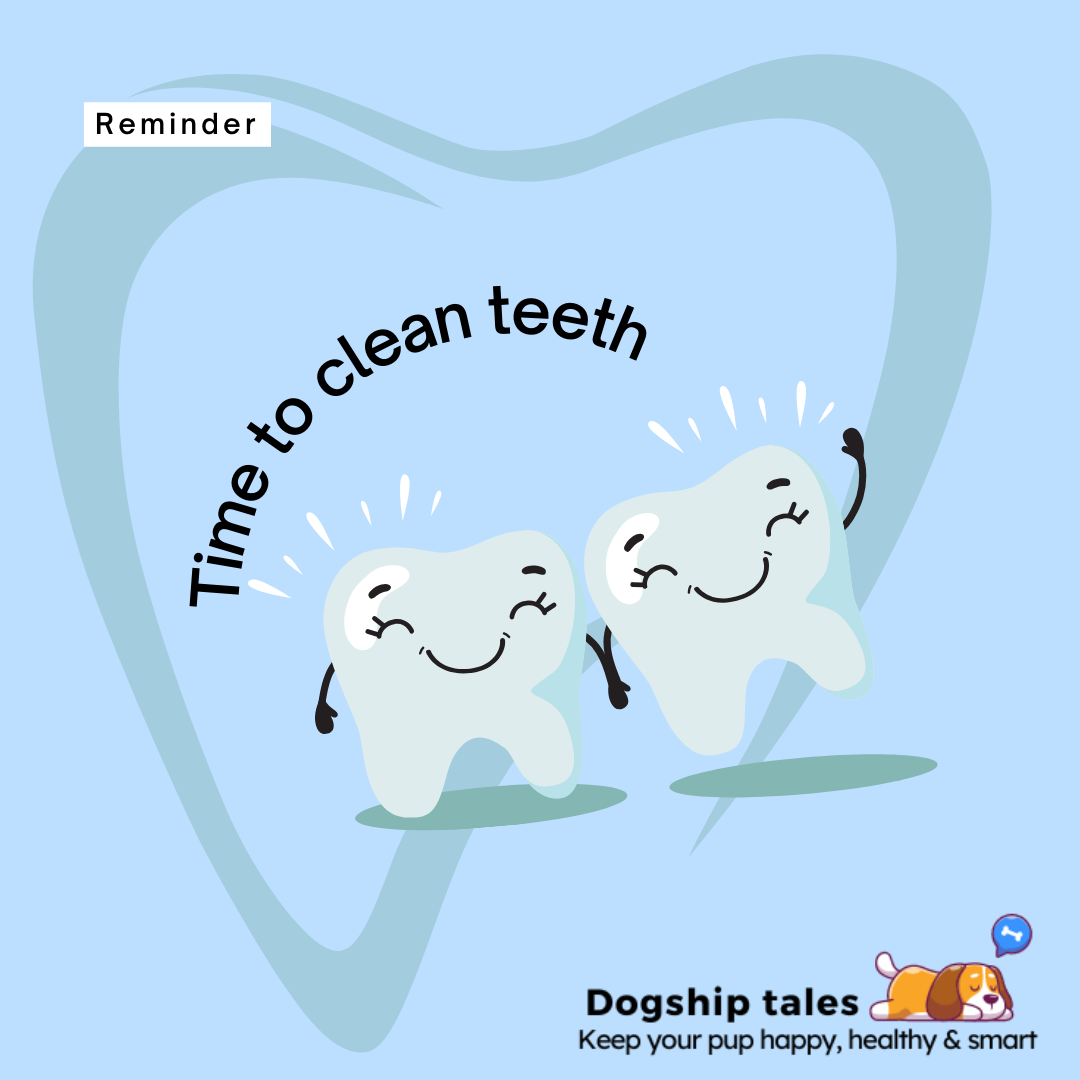Bacon. It’s crispy, salty, and oh-so-delicious. If you’re a dog parent, chances are you’ve caught your furry friend eyeing your breakfast plate with a longing stare. But before you toss a strip to your pup, let’s dive into the big question: Can dogs eat bacon?
Spoiler alert: while bacon isn’t toxic to dogs, it’s not the healthiest choice either. Let’s explore the reasons, potential risks, and healthier alternatives to keep your dog happy and safe.
Is Bacon Safe for Dogs?
It depends. A small piece of bacon here and there might not harm your dog, but making it a regular treat can lead to health issues. Here’s why:
1. High Fat Content
Bacon is loaded with fat, which makes it so tasty to us—and so problematic for dogs. Too much fat can upset your dog’s stomach and even lead to serious conditions like pancreatitis, which is inflammation of the pancreas.
2. Excessive Salt
Bacon is incredibly salty. Dogs don’t need as much sodium as humans do, and too much can cause dehydration, high blood pressure, or sodium ion poisoning in severe cases.
3. Additives and Preservatives
Store-bought bacon often contains artificial additives and preservatives like nitrates, which can be harmful to dogs over time.
4. Risk of Obesity
Regularly feeding bacon to your dog can contribute to obesity, which can lead to a range of health problems, including joint pain, diabetes, and heart disease.
When Is Bacon Okay for Dogs?
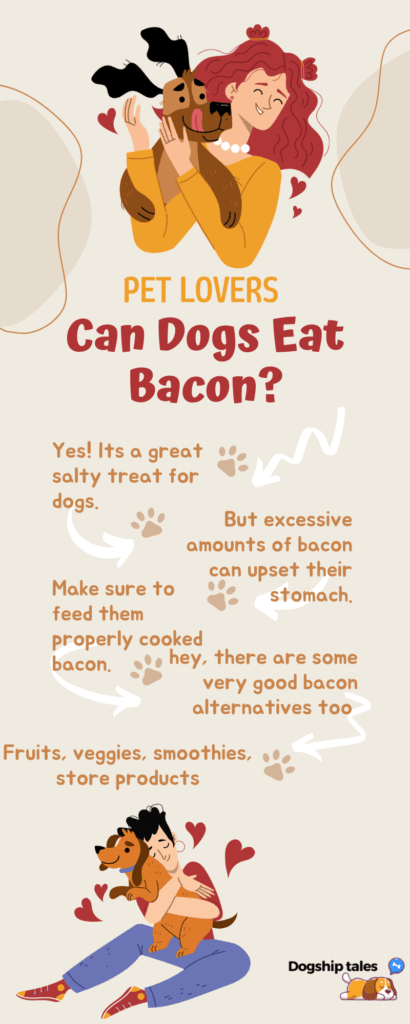
If you absolutely can’t resist sharing a tiny piece of bacon with your pup, moderation is key. Follow these guidelines to minimize risks:
- Cooked, Plain Bacon Only: Avoid raw bacon, as it can carry harmful bacteria or parasites. Cook it thoroughly but skip the spices, oils, and seasonings.
- Small Portions: A tiny piece (about the size of your fingertip) is enough. Think of it as an occasional indulgence rather than a regular snack.
- Monitor Your Dog: Watch for signs of stomach upset, dehydration, or unusual behavior after eating bacon.
Why Bacon Might Not Be the Best Treat
As much as we love spoiling our dogs, bacon isn’t the most nutritious option. Here’s why you might want to consider other treats:
1. Risk of Pancreatitis
Pancreatitis is a painful condition that can result from consuming fatty foods like bacon. Symptoms include vomiting, diarrhea, loss of appetite, and lethargy. If you suspect your dog has pancreatitis, contact your vet immediately.
2. Long-Term Health Impacts
Consistently feeding your dog fatty, salty foods can take a toll on their heart, kidneys, and overall well-being. Preventing these issues is easier (and cheaper) than treating them.
Here I am attaching a link to the detailed Scientific studies on dog nutritious needs that will help you understand your pet feeding habits comprehensively.
3. Alternative Snacks Are Healthier
There are so many safe, nutritious, and delicious alternatives to bacon that your dog will love just as much—and you’ll feel better knowing they’re eating something healthy.
Healthy Alternatives to Bacon
If you’re looking to treat your dog without compromising their health, here are some better options:
- Cooked Lean Meats: Small pieces of cooked chicken, turkey, or lean beef are great high-protein treats.
- Vegetables: Dogs often enjoy crunchy veggies like carrots, green beans, or cucumber slices.
- Dog-Safe Fruits: Blueberries, apple slices (without seeds), and banana chunks are sweet and nutritious.
- Store-Bought Dog Treats: Many brands offer low-fat, high-protein treats that are specifically formulated for canine health.
What to Do If Your Dog Eats Bacon Accidentally
Accidents happen. If your dog swipes a piece of bacon off the counter, don’t panic. Here’s what you should do:
- Assess the Situation: How much bacon did they eat? A single strip is unlikely to cause harm in most cases, but larger amounts could lead to problems.
- Monitor for Symptoms: Watch for vomiting, diarrhea, excessive thirst, or lethargy. These could be signs of an upset stomach or pancreatitis.
- Contact Your Vet: If you’re unsure or your dog is showing concerning symptoms, call your veterinarian for advice.
Frequently Asked Questions
1. Can Dogs Eat Turkey Bacon?
Turkey bacon is lower in fat than regular bacon, making it a slightly better option. However, it’s still high in salt and should only be given in small amounts occasionally.
2. Is Bacon Grease Safe for Dogs?
No, bacon grease is not safe for dogs. It’s pure fat and can upset your dog’s stomach or lead to pancreatitis.
3. Can Puppies Eat Bacon?
Puppies have sensitive stomachs and developing bodies, so it’s best to avoid giving them bacon altogether.
4. Are There Bacon-Flavored Dog Treats?
Yes! Many dog treat brands offer bacon-flavored options that are made with dog-safe ingredients. These can be a great alternative.
5. How Much Bacon Is Too Much?
Even a single strip of bacon can be too much for small dogs. Large dogs might handle it better, but it’s still not recommended to make bacon a regular part of their diet.
Final Thoughts: Should Dogs Eat Bacon?
As dog parents, it’s natural to want to share our favorite foods with our furry companions. But when it comes to bacon, the risks often outweigh the benefits. While a tiny nibble on rare occasions is unlikely to harm your dog, there are far healthier (and safer) ways to show your love.
One more thing! If your dog is under some special training for sports or something then it is very important for you to discuss with the trainer if you dog can eat bacon or not?
Remember, your dog relies on you to make the best choices for their health. Treat them to something nutritious and dog-friendly instead of bacon, and they’ll wag their tail just as happily—if not more!
Got more questions about your dog’s diet? Check out our nutrition guides for tips and advice tailored to your furry friend’s needs.

